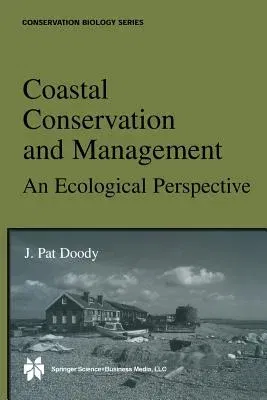Coastal Conservation and Management provides the reader with a
synthesis of the range and variation of the main coastal formations and
includes practical guidance on their management. The book discusses all
the main coastal habitats of importance for nature conservation
(saltmarsh, shingle, sand dune and seacliff) as well as combinations of
these habitats (estuaries and other coastal wetlands). It offers a
comprehensive picture of both the soft sedimentary formations and those
which are more resilient. While these habitats have all been covered
elsewhere in the literature, no single volume gives such a wide-ranging
account. An attempt is made throughout to provide the reader with a
basic understanding of the importance and range of variation of each
habitat and coastal ecosystem. The principal issues are discussed and
the key management options identified. Some prescriptive suggestions are
made, though for the most part, the reader is left to ponder the issues
and their possible solutions. The book argues for a more dynamic
approach to the conservation of coastal habitats commensurate with the
nature of the ecosystems themselves.
Coastal Conservation and Management also stresses interrelationships
with human use. By bringing these elements together, it highlights the
need for new approaches to conservation management, which accept that
change can be a healing force in the rehabilitation of degraded coastal
areas. In this context, the book brings the geomorphology of coastal
systems to the fore, suggesting that they may be more robust than is
normally suggested. In the face of global warming, Coastal
Conservation and Management also advocates a reappraisal of the value
of natural systems as a means of providing a more flexible and efficient
response to rising sea levels.


